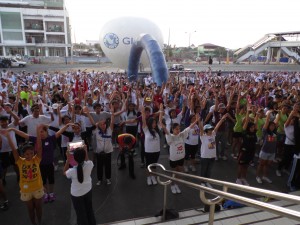
Gone are the days when women are relegated in the homes caring for the children, cooking the meals and looking after the needs of the family.
Many of today’s women can already be found in big companies, some holding positions even higher than their male counterparts, and in several institutions that were used to be dominated by men.
“Women of today are already out of the box. Before, they were dependent on men. But now they are more liberated and do not anymore depend on men especially in decision-making,” said Eduardo Guevarra, Social Welfare Officer III and DSWD 6’s Focal Person on Women, Family and Community.
Having equal opportunity with men, Guevarra added many women now excel in different fields and professions.
“There are women who are politicians. We already had a woman president. There are women engineers, architects and even pilots,” he stressed.
As to with women who cannot afford a college education, Guevarra said the DSWD has programs and services especially designed to empower them and create opportunities for them to improve their well-being.
Listahanan data
Data of the Listahanan (formerly National Household Targeting System for Poverty Reduction) show that 47.7 percent of women in Western Visayas are poor. Majority of them, comprising 82.2 percent, are found in rural areas.
There is also a high magnitude of women in poor households with no occupation with 67.4 percent.
“One factor is because of their educational attainment as the data show that 18.7 percent of them were not able to finish or complete any grade level at all. Based on the data, only 12.5 percent of the women in the region were able to finish elementary and 14.8 were able to finish high school,” Listahanan revealed.
Meanwhile, women who are in the age range of 15 years old and above are mostly engaged as laborers, unskilled workers, farmers, fisherfolk, and service/shop market workers.
Guevarrahowever said that through the efforts of DSWD, the notion of women as “second class citizens” is gradually changing and women are now finding their place in the society.
KALIPI
“Women in community are disadvantaged, that is why we educate them on their rights.We have to increase their level of aspiration,” he stressed. “So we organize women in the community. Through the KALIPI, we prepare them socially, we train them before they can avail of livelihood. We do a value orientation, mind-setting to prepare them.”
The KALIPI, or Kalipunan ng Liping Pilipina, is one of the programs started by the DSWD in 1992, which is now devolved to the local government units. It is a national federation of women’s organization which is non-stock, non-profit, and non-political organization committed to respond to the needs of organizing women from the grassroots level and genuinely promotes women’s development and empowerment issues by harnessing their strengths and developing their full potentials.
KALIPI also serves as a venue for women to raise their concerns affecting their lives and express their grievances on factors that curtail their effectiveness.
“The KALIPI enables women to freely participate in all discussions and decision-making. Women now are more informed of their rights and they know how to assert these rights,” Guevarra emphasized.
Women’s resiliency
This year’s Women’s Month celebration focuses on the resiliency of women especially in facing the recent disasters that befell the country.
The theme of the 2014 Women’s Month, “Juana, Ang Tatag Mo ay Gabay Natin sa Pagbangon at Pagsulong,” aims to recognize the strength of women and their capacity to immediately cope up with the changing times./dswd6/Wenna Berondo-Bendol
